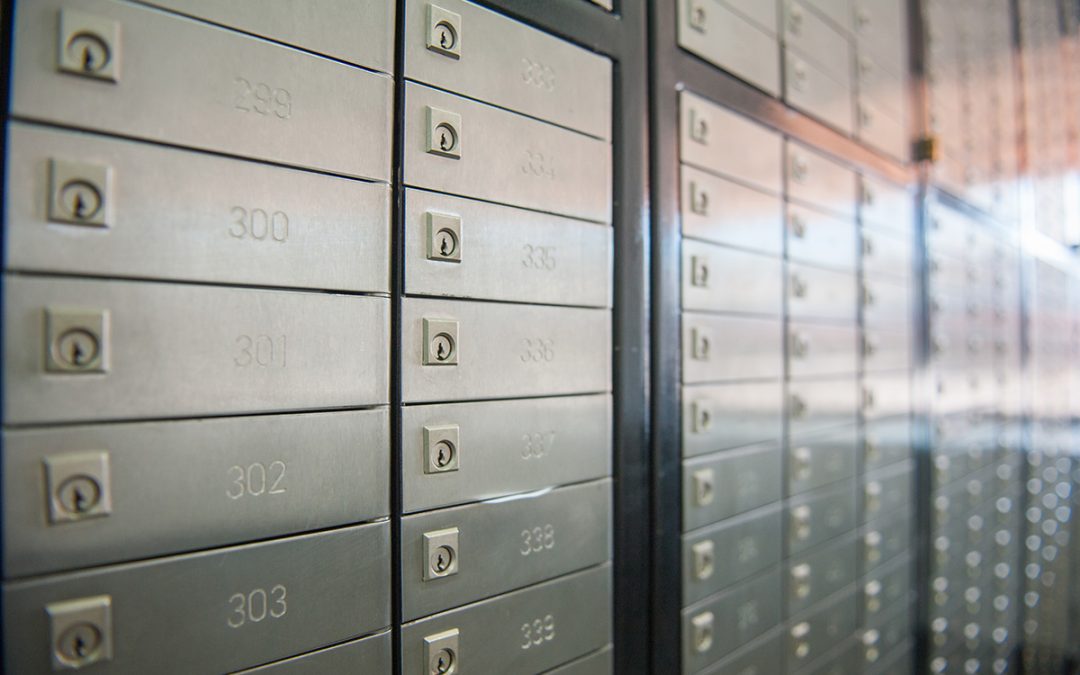Safety Deposit Boxes vs Home Safes
Home security is especially important if you’re looking to protect valuables and priceless items from burglary. Perimeter fencing, alarms and remote CCTV is all well and good but for total peace of mind, lockable, secretly concealed home safes and safety deposit boxes are sometimes the only options.
The key decision you have to make is, should you entrust your valuables to the bank, a high-security premise or take it upon yourself to install home safes?
This month, we’ll be considering the pros and cons of safety deposit boxes and in-house safes so you can make an informed decision and choose the correct ultimate protection for your needs.
Pros of an In-House Safe
A well constructed and professionally installed in-house safe is a good investment and you’ll recoup the costs over time, simply in the security afforded to your cherished items. A safe is also the best place for valuables that you might need access to instantly, like hard drives, passports and other sensitive documents.
Cons of an In-House Safe
Off-the-shelf in-house safes are never fire rated high enough to protect the contents for very long, especially with regards to digital items. Same goes for waterproofing. Most are water resistant, so if your home is a single storey and prone to flooding, this is a serious flaw. Even if you keep your safe on the first floor, if a fire breaks out and the fire service must douse the house, your safe is unlikely to withstand the water damage sustained by an industrially rated hose.
Pros of a Safety Deposit Box
Here is the standard set up for a safety deposit box:
Place your valuable items inside the box. The box is made from a composite of galvanised steel with aluminium nosing that is literally bulletproof. Close the box and lock it into the rack. The rack contains other identical, but numbered, boxes that are secured using double deadlocks. The rack is located in a private area, known as a vault, inside a bank or high-security building.
During the day, guards and police are on hand to attend any incident within the bank. At night, the bank is locked, alarmed and monitored continually by the police, armed services and a personal manned guard who are on call 24/7, should the unthinkable happen.
If your box is breached, the bank will cover the contents no matter what the cost, based on the minuscule chances of this ever happening. These are the pros of a safety deposit box.
Cons of a Safety Deposit Box
If you need 24-hour, 7 days a week access to your valuables, you’ll need an in-house safe. The major downside of a safety deposit box – not considering the expense – is its inaccessibility. You’ll need to either make an appointment with the bank or choose a bank with a more relaxed deposit box policy. They’re great for an old family relic you’d rather forget but not so good for your passport and essential keys. And did we mention the expense? Right, we did. You’ll be expected to pay a monthly/annual fee that is exorbitant compared to the one-off payment of a decent safe.
For more information on Safety Deposit Boxes vs Home Safes contact Soteria Safes.
The original version of this article was published in www.ibwest.co.uk


Recent Comments